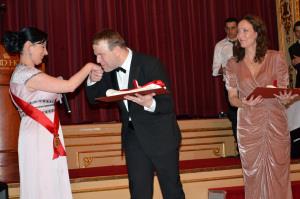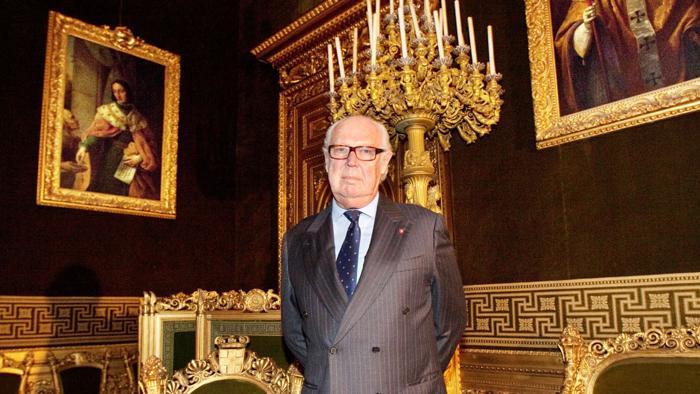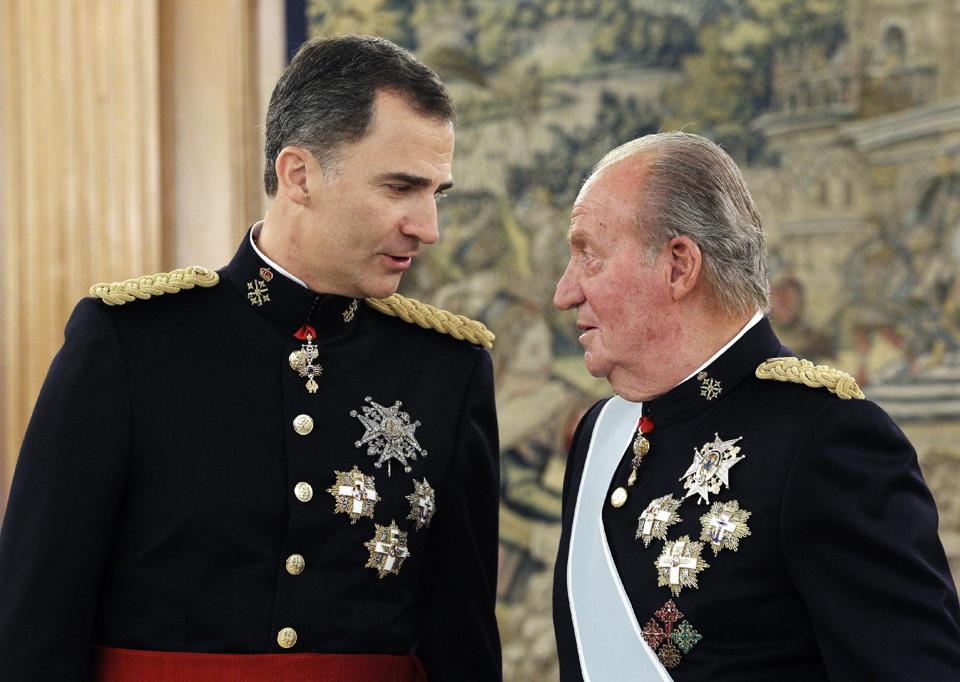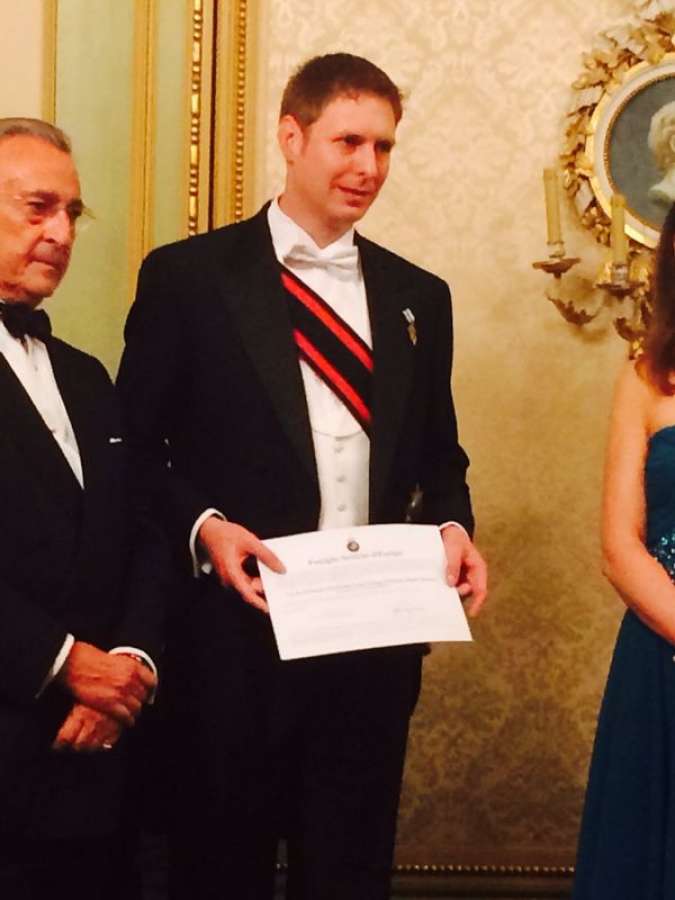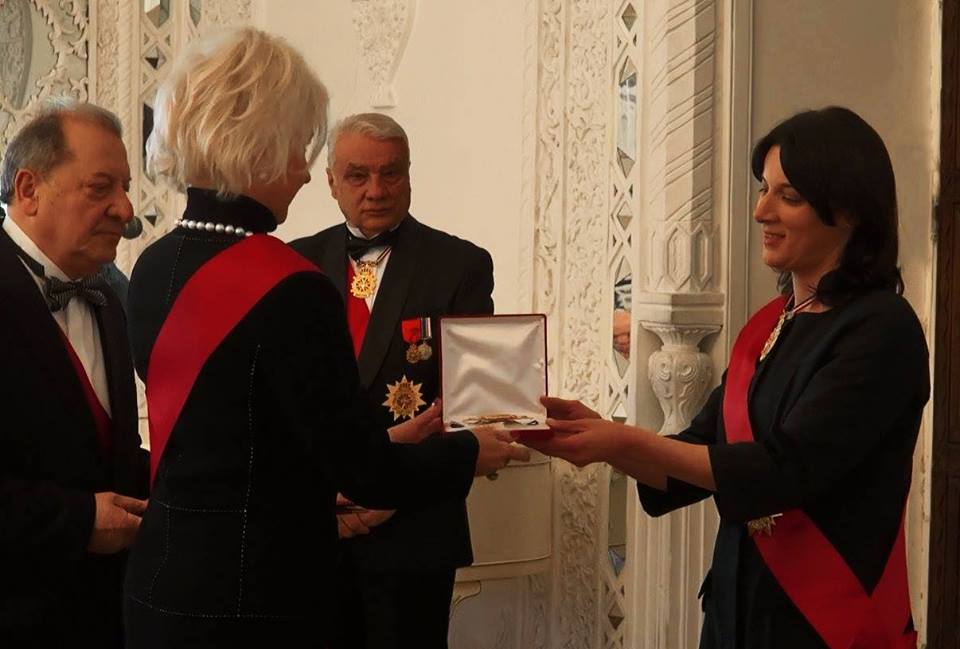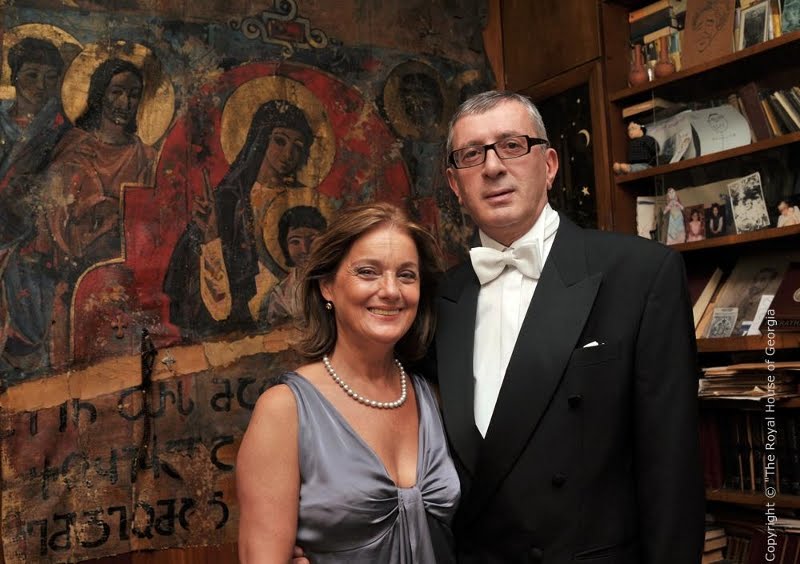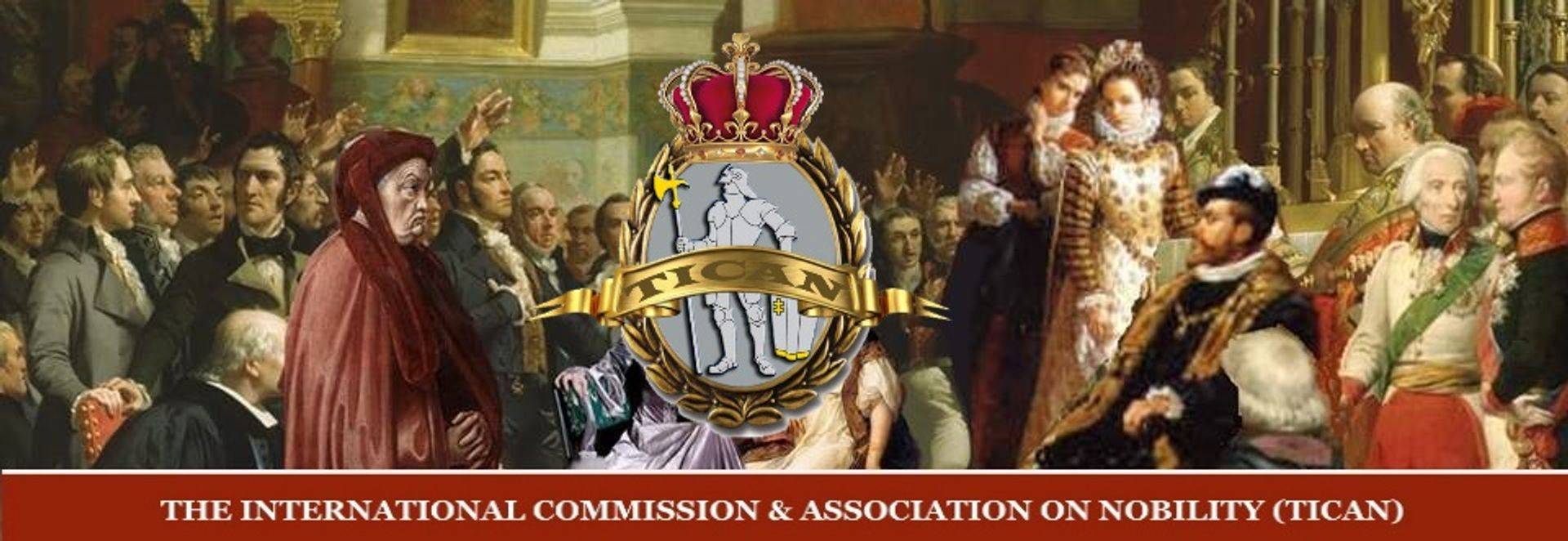
Title
PREFACE
STATEMENT OF PURPOSE
This Commission and Association on Nobility was established in January 2008 to unite and honor in its membership those persons who represent the contemporary Nobility which remains latent but hidden in the shadows. This Association is based on the ideals of chivalry, nobility, aristocracy and for the Defense of International Nobility. The purpose of the Organization is to unite and prolong the legacy of the old Noble families spreading now all over the world. It was founded by Salvatore Ferdinando Antonio CAPUTO.
Similar to all nobility associations, today, Membership in the Commission (TICAN) is open to all descendants of the nobility, regardless of their nationality, religion or political affiliation, as long as they support the activities of The International Commission and Association on Nobility.
The International Commission and Association on Nobility support heraldic research, genealogy, and a promulgation of historic and cultural values. The Commission has no authority to grant coats of arms, but stands ready to help others with petitions.
The International Commission and Association on Nobility is a nobility and monarchist organization with educational goals and purposes: to give unity to monarchists and nobilities, enabling them to meet and contact other monarchists; to promulgate information about and foster interest in monarchy, monarchies, and royalty; to generally educate the public on these subjects; to advance the political theory, history, and philosophy of monarchy, to further theories of modern monarchy, and to promote and defend the theory of monarchy as a superior governmental form.
ARTICLE I
NAME AND AUTHORITY
The name of the organization shall be “The International Commission and Association on Nobility” and hereafter shall be referred to TICAN. TICAN is an International Apolitical Body, Ecumenical, Non-profit Organization (NGO) established as an Independent NGO in accordance with the European Convention on the Recognition of Legal Entity of International Non-Governmental Organizations.
The Organization is distinctly Christian in nature. It is ecumenical and shall not impose a specific denominational theology or dogma upon its members. The Organization does not discriminate against any individual on the basis of gender, race, color, nationality or denomination or world view.
The Organization may accept a Protector if this may serve its aims. Such Protector must be Christian. A possible state protection must be associated with the Christian Faith or be religiously neutral. Protection of the Organization is not associated with any power upon the Organization.
The Association will have its headquarters at the residence of the President.
ARTICLE 2
PRESIDENT AND COUNCIL
In case the President resigns his Office, then the Executive Secretary acts as President, and he / she must - in 30 days after the vacancy of the Office of the President - summon up all members of the association in a Special Assembly in order to inform to all members of the association - apart from the honorary ones. All members - apart from the honorary ones - are eligible for the office of the Executive Secretary. The candidate who receives the most votes in the elections becomes the new Executive Secretary. If the first round of elections does not give a new Executive Secretary then the new Executive Secretary is determined by drawing of lottery among the candidates who have gained equal votes.
The President is supported by a Council. The President of the Commission is the sole representative, while operation and representation of the Organization is the responsibility of all members of the Council. The Council by the intermediary of the President may propose amendments to the Constitution, Laws, Statutes and other regulations of the Organization.
ARTICLE 3
PURPOSE
The Commission is to inform on the legitimacy and claims of reigning and non-territorial sovereign Royal Houses. The Commission only recognizes those organizations that pertain to the system of each Royal House. Legitimate Order of Chivalry or nobility is persons who have achieved Knightly Rank in a recognized international Chivalry or Religious Order and recognized public Royal Houses. The Commission`s systems and honors neither register no certifies grants, nobility or arms for members.
The following goals have been maintained faithfully as a continuation of the “Royalty and Nobility,” through some of the following activities:
- To re-establish and promote the social institutions of monarchy and nobility and practice their principles in a world which has largely forgotten them: chivalry, honor, duty, loyalty, respect, enlightenment, tolerance;
- The identification, publication and dissemination of genealogical and heraldic articles and resources;
-
- The promulgation of chivalric ideals and awards;
-
- Communication of activities related to Nobility and Heraldry with every known head of Imperial, Royal, and Serene Houses and Monarchist/Nobility Organizations throughout the world;
-
- Support for similar, newly formed, cultural heraldic/nobility organizations in all countries.
-
- To promote the ideals of nobility, royalty and monarchy in modern times, including its illustrious past.
-
- To set criteria for the acceptance of orders that was arbitrary and ignored the different historical development of honors systems in different countries.
ARTICLE 4
COAT OF ARMS ADOPTED BY THE INTERNATIONAL COMMISSION AND ASSOCIATION ON NOBILITY
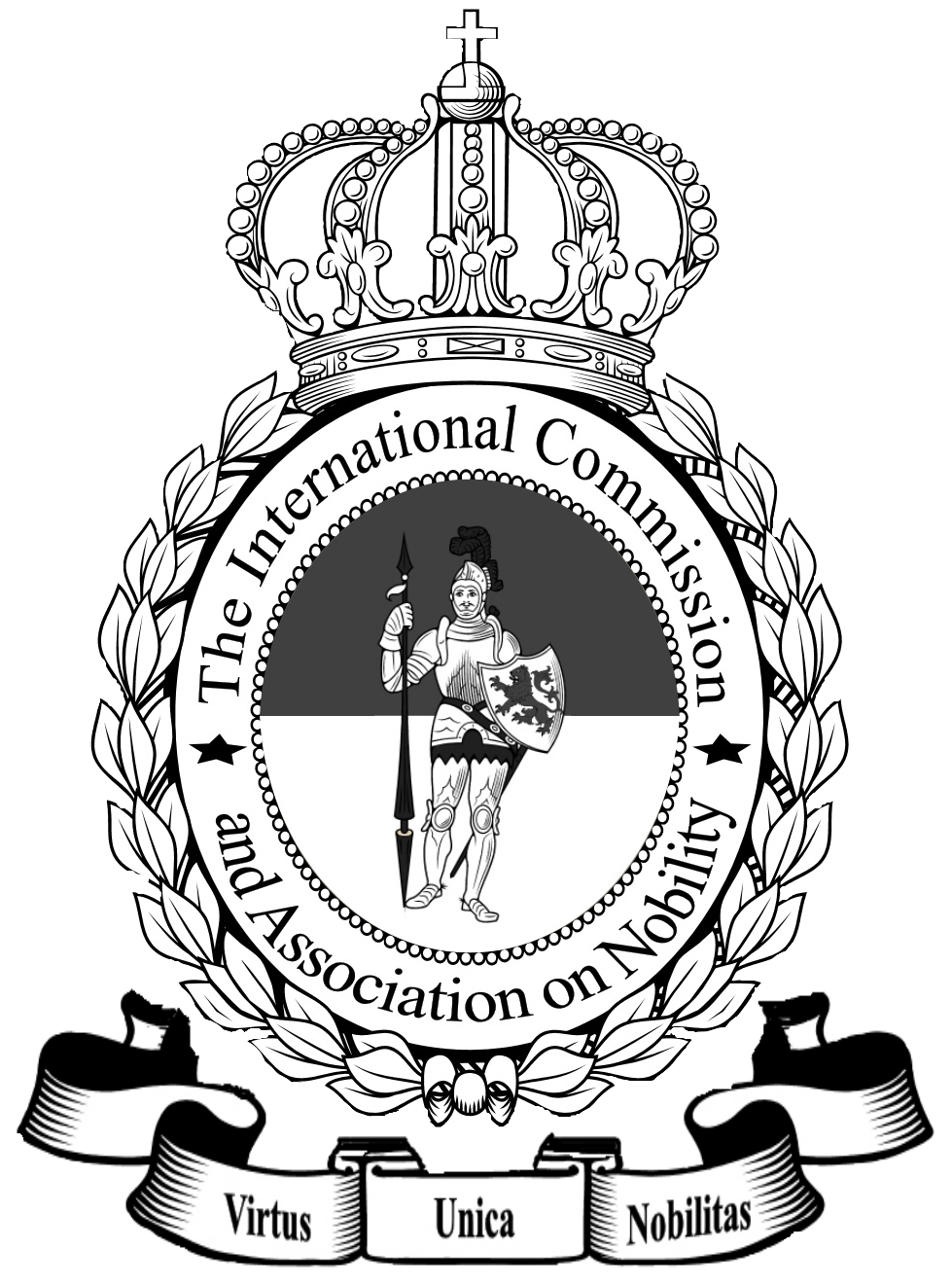
The choice of the commission´s symbol is an oval shape surrounded by a proud laurel wreath combine to a striking design that brings out the strength and vitality in the logo. The crown on top of the oval shape represent the legacy of the old Noble families spreading now all over the world while in the center a Knight is based on the ideals of chivalry, nobility, aristocracy and for the Defense of International Nobility.
ARTICLE 5
MOTTO OF THE INTERNATIONAL COMMISSION AND ASSOCIATION ON NOBILITY
VIRTUS UNICA NOBILITAS- (Virtue is the only Nobility)
ARTICLE 6
FINANCIAL SUPPORT
Initiation fees (except invitations) of all members shall be payable when applications are submitted for approval. Each member shall pay annual dues in an amount to be determined by the President. Total dues of all members, together with other income, shall be sufficient to cover insurance and other expenses. All members are personally and equally liable if the assets of the Commission are insufficient to discharge all liabilities/obligations.
The Executive Secretary is asked to check each year the annual chapter listing to verify that all members are paid for the year. This money is used to support the work of the Commission on all levels.
ARTICLE 7
OFFICERS AND GOVERNING BODY
The officers of TICAN shall consist of President, Executive Secretary, Country Directors and Advisers (other officers optional). The duties of the officers are outlined in (list Article/paragraph) of this Private Organization’s By-laws.
The Council shall consist of the officers and the President shall preside over all official meetings of the general membership or the Council.
ARTICLE 8
MEMBERSHIP
HONORARY ROYAL MEMBERS: Recognized Heads of Royal Houses
This is the case of members of Royal Families or who have reigned in Europe, or Families that are honored with a Princely title, or Heads of Ducal Family Houses.
Eligibility for membership consists not simply of proving legitimate royal descent, but of establishing worthiness of the high distinction this membership confers. It is also required that the candidates shall have attained the majority of age.
These members are exempted from payment of annual membership.
Life Membership - join us and be part of a good cause.
HONORARY MEMBERS:
The Honorary Members of The International Commission and Association on Nobility being of the same kind, group, occupation, society, or locality; having in common certain characteristics or interests
Honorary Members of the Commission are Royal Families, traditional chiefs of a people and or recognized individuals who have attained acknowledged eminence related to monarchy, nobility and Chivalric Orders research, design, or construction. Honorary members share many similarities including the belief to re-establish and promote the social institutions of monarchy and nobility and practice their principles in a world which has largely forgotten them: chivalry, honor, duty, loyalty, respect, enlightenment, tolerance; To promote the ideals of nobility, royalty and monarchy in modern times, including its illustrious past.
All Honorary Members are individuals that advise and support the goals of the Commission & Association on Nobility. Historians, Heralds and Genealogists can also join the Commission.
Honorary Members of the Commission are also recognized individuals who have attained acknowledged eminence related to monarchy, nobility and Chivalric Orders research, design, or construction.
Membership - by invitation only.
NOBILITY MEMBERS:
Membership in the class of nobility is for those holding a title of nobility and or who are members of a legitimate Hereditary Order of Chivalry. Potential prospects considering applying for membership should hold a title of nobility, which is backed by solid evidence. Honorific Order of Chivalry is not a noble title.
A way to be certain of your family heritage is to have your family line researched by a professional genealogist.
Legitimate Order of Chivalry are persons who have achieved Knightly Rank in a recognized international Chivalry or Religious Order and recognized public Royal Houses. See our page "Royal Families. To become noble, it can be done by "letters": that is, by royal grant. The king could always ennoble anyone he wished.
Hereditary titles, in a general sense, are titles of nobility, positions or styles that are hereditary and thus tend or are bound to remain in particular families.
It is important to understand that the results of the investigation whether positive or negative will be not being made public. The information will only be shared with a few key individuals who keep confidential information and private.
Should we find some problems in this investigation process, we will share them with you in the hope of clarifying whatever is ascertained.
At any time during this research, you may withdraw your desire to obtain “Nobility Membership” or change it to “Titular Member” as desired.
The Commission does not certify or recognize any nobility. The category of "Nobility Membership", does not mean we certify nobility or recognize someone as noble but it only signifies that the member enters in this category for having demonstrated the received honor from a fons honorum.
The Commission does not render opinions as to the legitimacy of specific titles of nobility claimed by this or that person. It often occurs that one publisher or fount of honor "recognizes" a certain person's title while another does no.
TITULAR MEMBERS: The Titular Class of the Association, which is the largest of the Organization, is open to worthy individuals who support the ideals of chivalry and nobility. Provided, always, that such candidates are of excellent character and are considered qualified and worthy by the officers of this Commission.
A Curriculum Vitae (Life Resume) is required.
MEMBERS DONORS are considered those who have the requirements for admission and pay an annual fee equal to or exceeding three times the annual fee for Titular members.
PROCEDURE TO REQUEST MEMBERSHIP IN THE COMMISSION AND ASSOCIATION ON NOBILITY:
A - A Letter (or fill the application form) to the Commission requesting admission to one of three classes of membership (Excluding Honorary Members).
B - Complete Curriculum Vitae (CV) of the applicant.
C - Proof of nobility or knighthood for nobility class. (That one is true member of the nobility or a recognized member of a royal family, or that one is a true knight, baron, prince or some other genuine title of nobility or royalty).
D - Coat of Arms of the applicant in except for the titular or donor class member which is voluntarily.
All applications to be sent electronically to: commission-nobility@gmail.com
An electronic signature constitutes a legal and binding application agreement.
ARTICLE 9
COUNTRY DIRECTOR
Highest-ranking representative to stay in contact with organizations, projects and members worldwide and to have reliable local contact, the President of TICAN appoints personalities in various countries or regions representing the Commission as "Country Director of The International Commission and Association on Nobility”. Country Directors may be Members in good standing that are above the age of 21.
The Council of the Commission can create as many Country or Regional Delegates as deemed desirable, both in different states of a country, as in main regions ad cities of those countries which is considered necessary.
ARTICLE 10
CODE OF CONDUCT
10.1 Every organization, whether it is a company, a club or a fraternal order, has expectations of how its members should act among each other and with those outside of the organization. The set of principles that govern these expectations is referred to as a code of conduct. They may me implied or written. Organizations may impose penalties for breaking their codes of conduct.
10.2 TERMINATION: Any Member of Officer who does not comply with the principles set forth by this organization, who disgrace this organization, whose behavior is construed as unbefitting a MEMBER in good standing, or who is slanderous and misrepresents the principles of this organization may be expelled and shall lose all rights granted a member in good standing.
ARTICLE 11
DISSOLUTION OF THE COMPANY
Section 1. If upon the winding up or dissolution of the Company there remains, after the satisfaction of all its debts and liabilities, any property whatsoever, the same shall not be paid or distributed among the Members of the Company, but shall be transferred either to some other institution (whether or not a member of the Company) having objects similar to the objects of the Company, or to some institution (whether or not a member of the Company) the objects of which are the promotion of charity or anything incidental or conducive thereto, such institution or institutions to be determined by the Members of the Company at or before the time of dissolution.
ARTICLE 12
AMENDMENTS
Section 1. Amendments or changes to this constitution may be proposed by the Members of the Council or by any member in good standing who submits a written request to the President, using the exact wording of the proposed change. Notice of the proposed change of the constitution, using the exact wording, shall be given to the members at least ten days in advance of a business meeting called to consider the change. This notice will be drafted as a proxy vote to allow those members who do not desire to, or can not attend the meeting to vote. The amendment, and shall become effective upon approval of the President.
Section 2. Any amendments or changes to this constitution shall be attached hereto.
Given this 15th day of January 2008.
BY-LAWS
(The International Commission and Association on Nobility - TICAN)
DUTIES OF OFFICERS
Section 1: It shall be the duty of all officers to ensure the Organization and its members comply with the Statute and all other directives affecting the operation of the Commission. The Council is composed of all the appointed and elected officers of the Organization.
Section 2: The President shall preside at all meetings of the membership and the Council as necessary, appoint the members of each special committee established by the Council, and perform such general functions as may be necessary.
Section 3: Any officer may be removed summarily with or without cause at any time by the President in his absolute discretion shall consider that the best interests of Commission would be served thereby.
Section 4. Gifts. The Board of Directors may accept on behalf of TICAN any contribution, gift, bequest or devise for the general purposes or for any special purposes of the Commission.
Section 5: Compensation. No Member of the Council Board shall receive any compensation for services rendered as Director.
Section 6: An officer may resign his/her office by notifying the President in writing.
President: The president shall preside at all meetings of the Council (or Board of Directors) and members, present at each meeting of the members and the Council a report of the condition of the business of TICAN, cause to be called regular and special meetings of the members and Directors in accordance with these Bylaws, sign and make all contracts and agreements in the name of TICAN, see that association records required by the statutes are properly kept and filed according to law.
Executive Secretary. The Executive Secretary shall assist the President, serve as an advisor for the various committee chairpersons, and assume the duties of the President, and shall, during the absence or inability of the President to render and perform his duties or exercise his powers, perform the duties and exercise the powers of the President.
The Executive Secretary shall keep the minutes of the meetings of the Board of Directors and of the members in appropriate books, give and serve all notices of TICAN, be custodian of the records and of the seal, keep the membership books in the manner prescribed by law, and perform all other duties incident to the office of Executive Secretary.
Duties of a Country Director
While the duties of a country director may vary depending on the country he resides, many country directors perform core duties such as facilitating meetings, voting for other officers, overseeing meeting or association delegates, distributing required information and assisting with meeting planning and preparation. In addition, a country director may be responsible for planning, preparing and overseeing an organization's budgets and other financial documents.
Meeting Preparation. It is often the responsibility of a Country Director to serve as the main meeting resource for the body of local delegates. This might involve copying or overseeing the duplication of required forms and reports and coordinating the distribution of documents to local delegates. The Country Director typically assists in the planning and organizing of association meetings by scheduling meeting dates and times, reviewing proposed agenda items prior to meetings and assigning pre-meeting action items as needed.
Meeting Facilities. Often the Country Director serves as the organizational leader who is responsible for ensuring meetings are run in an orderly and appropriate fashion. A chair makes sure meetings start and end on time and that required business is completed according to the Commission's bylaws and regulations. This duty might involve managing organizational voting, including voting for regional and city delegates, or overseeing other delegates by ensuring they are seated and ready to participate in meetings.
Signed on this 15 day of January 2008 - Revised September 26, 2010

